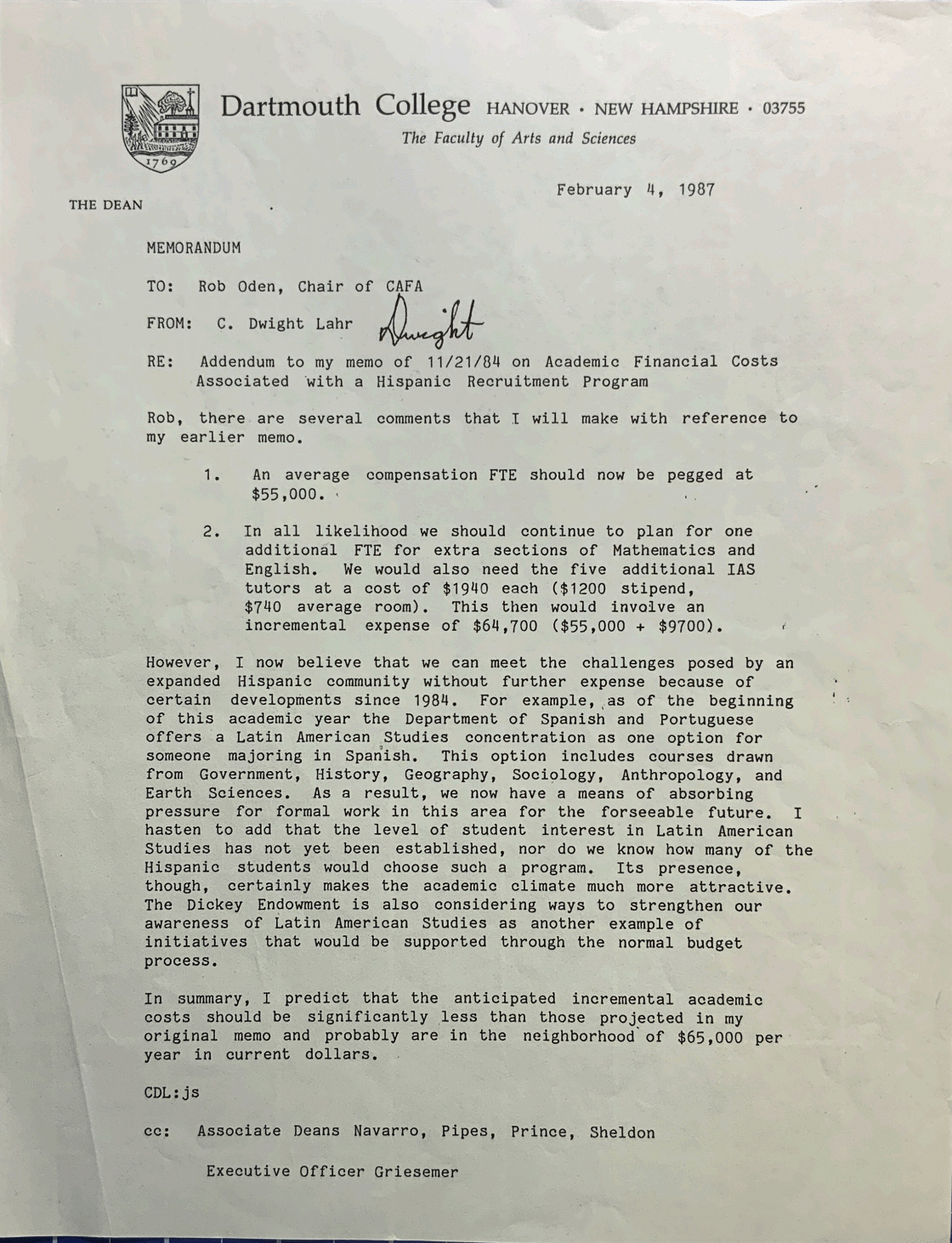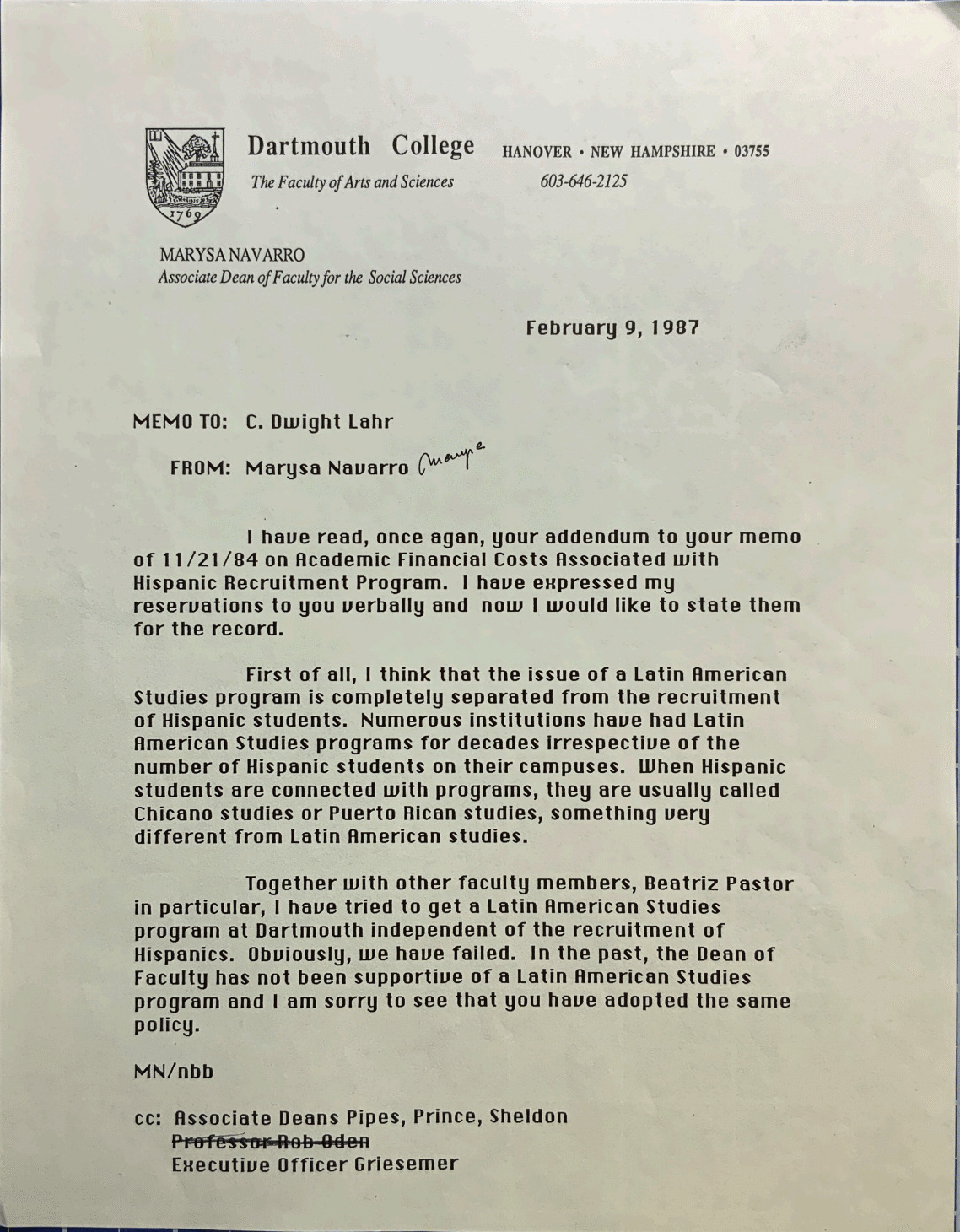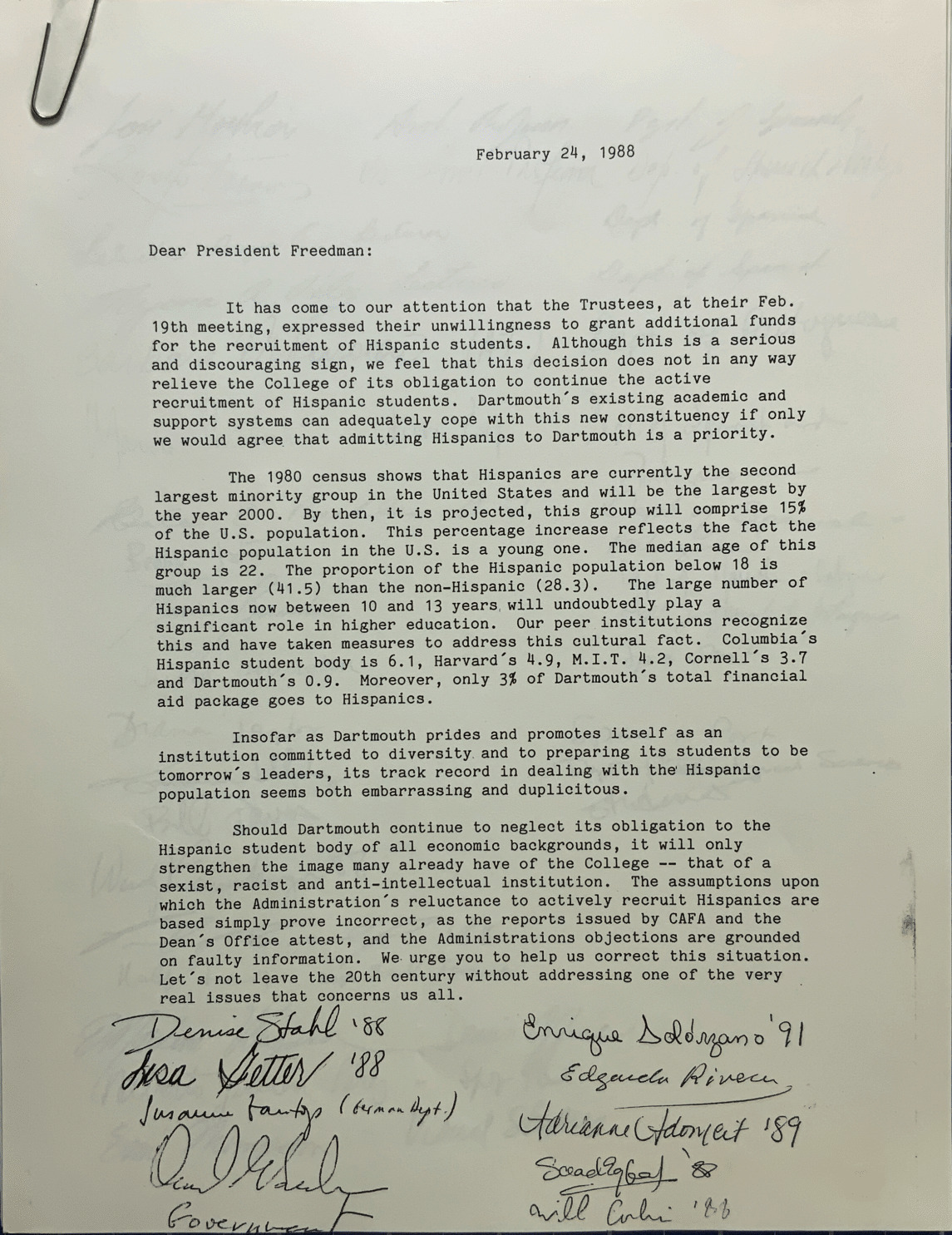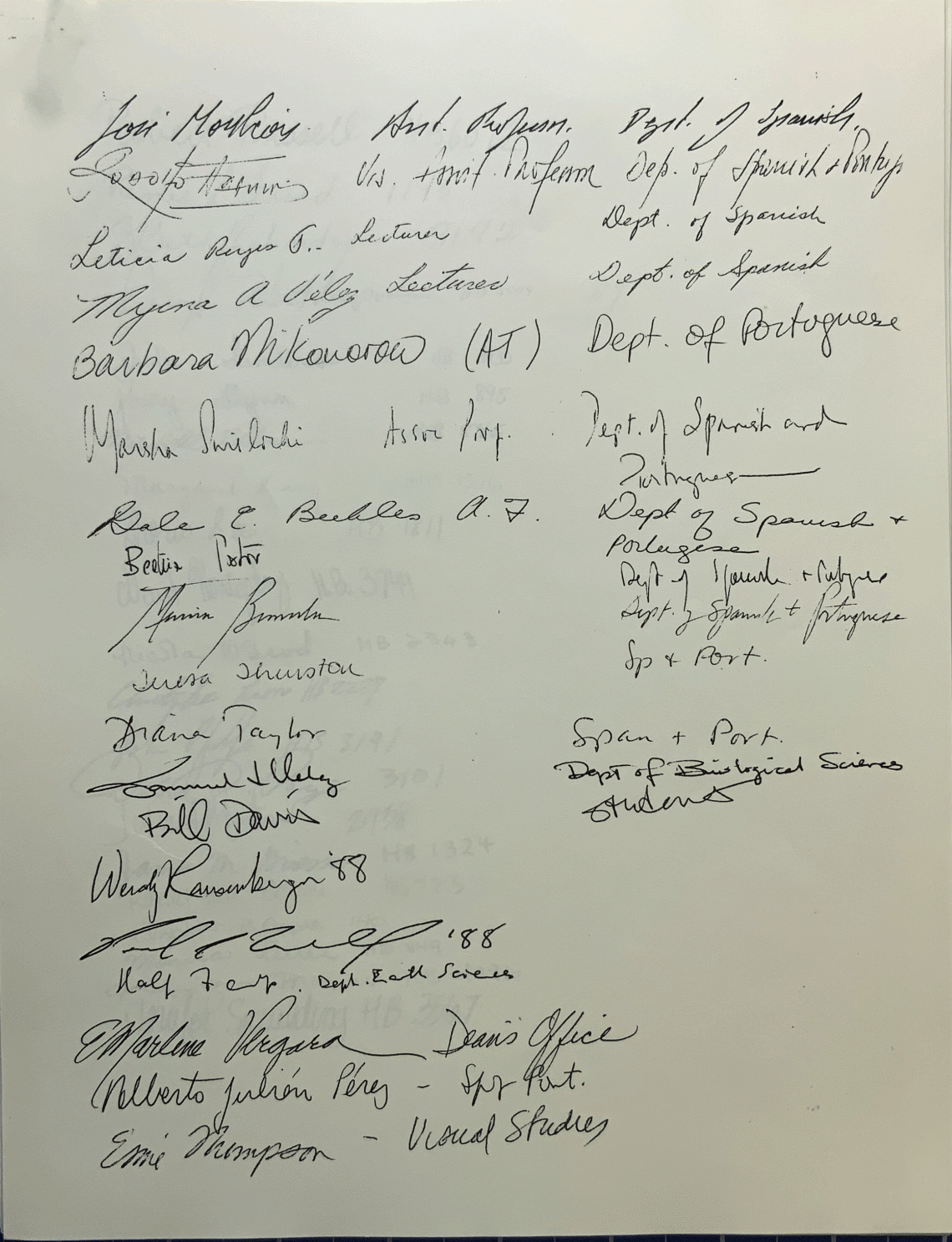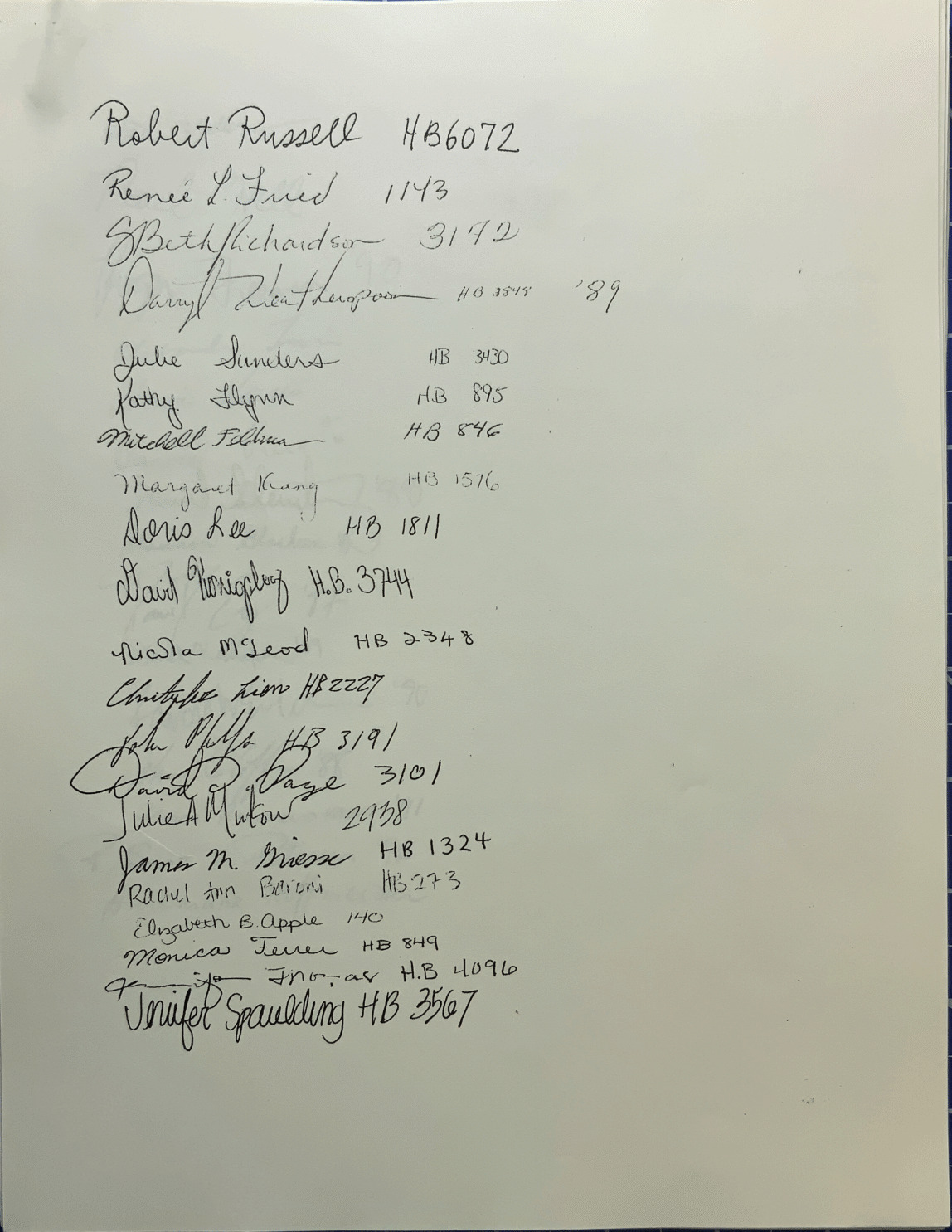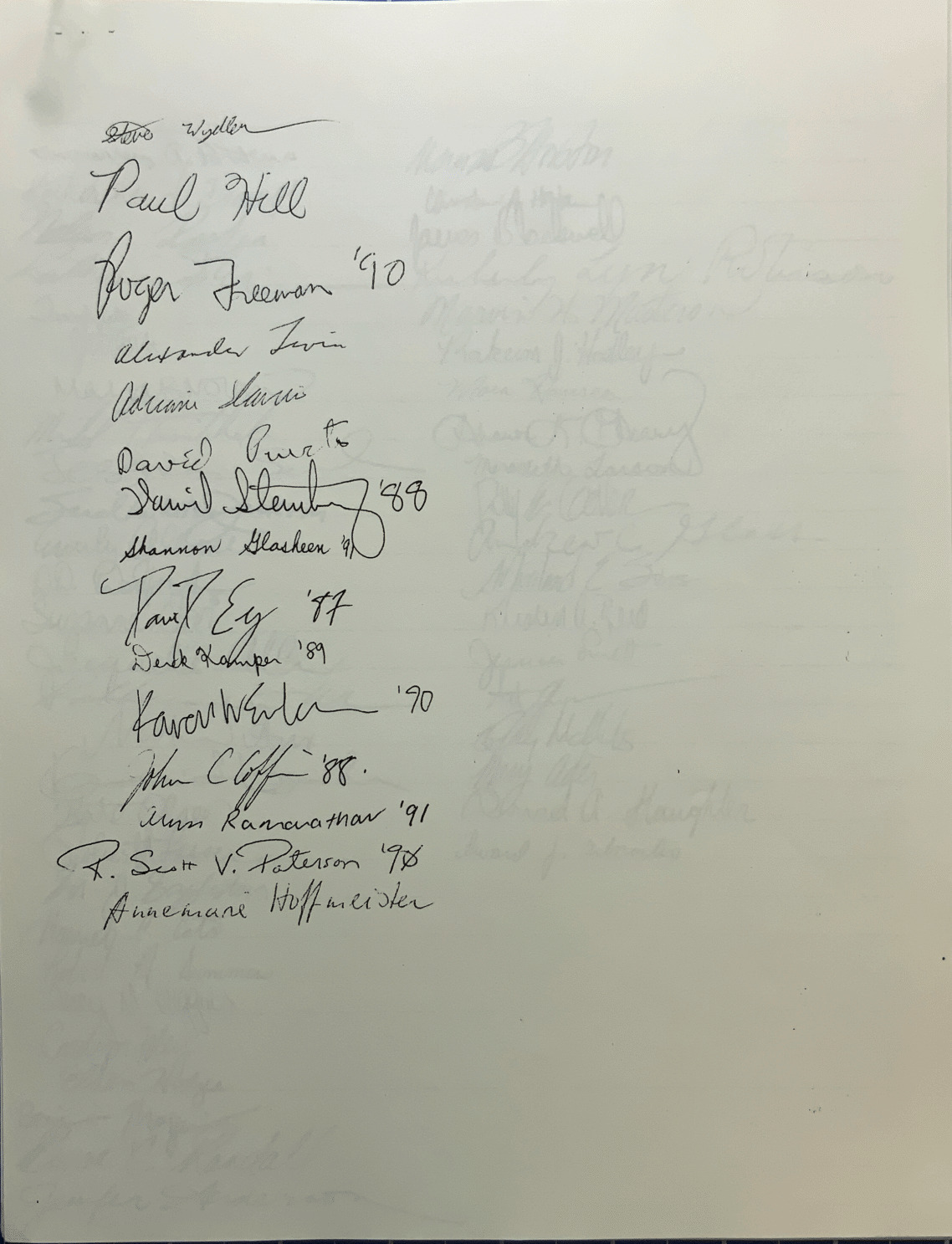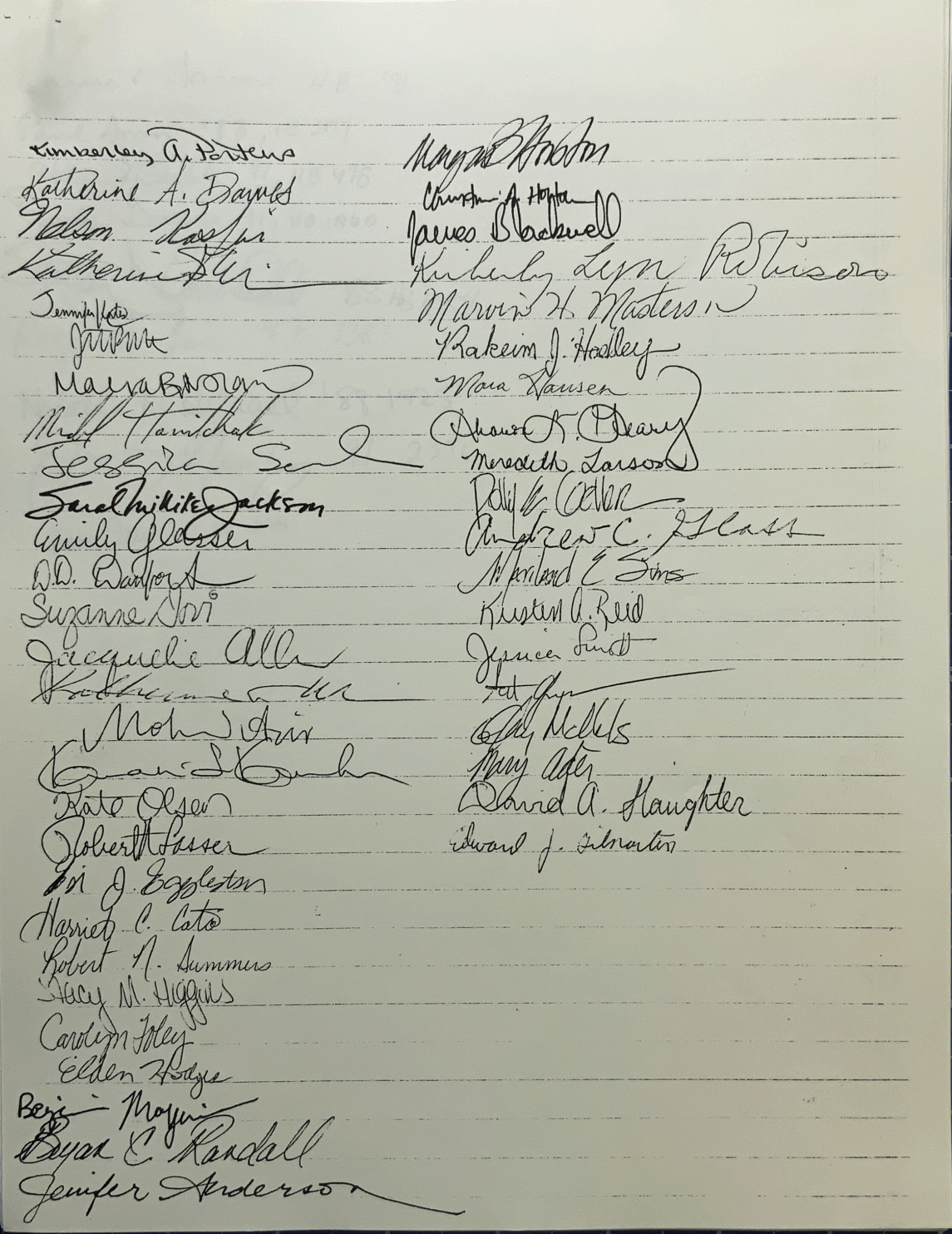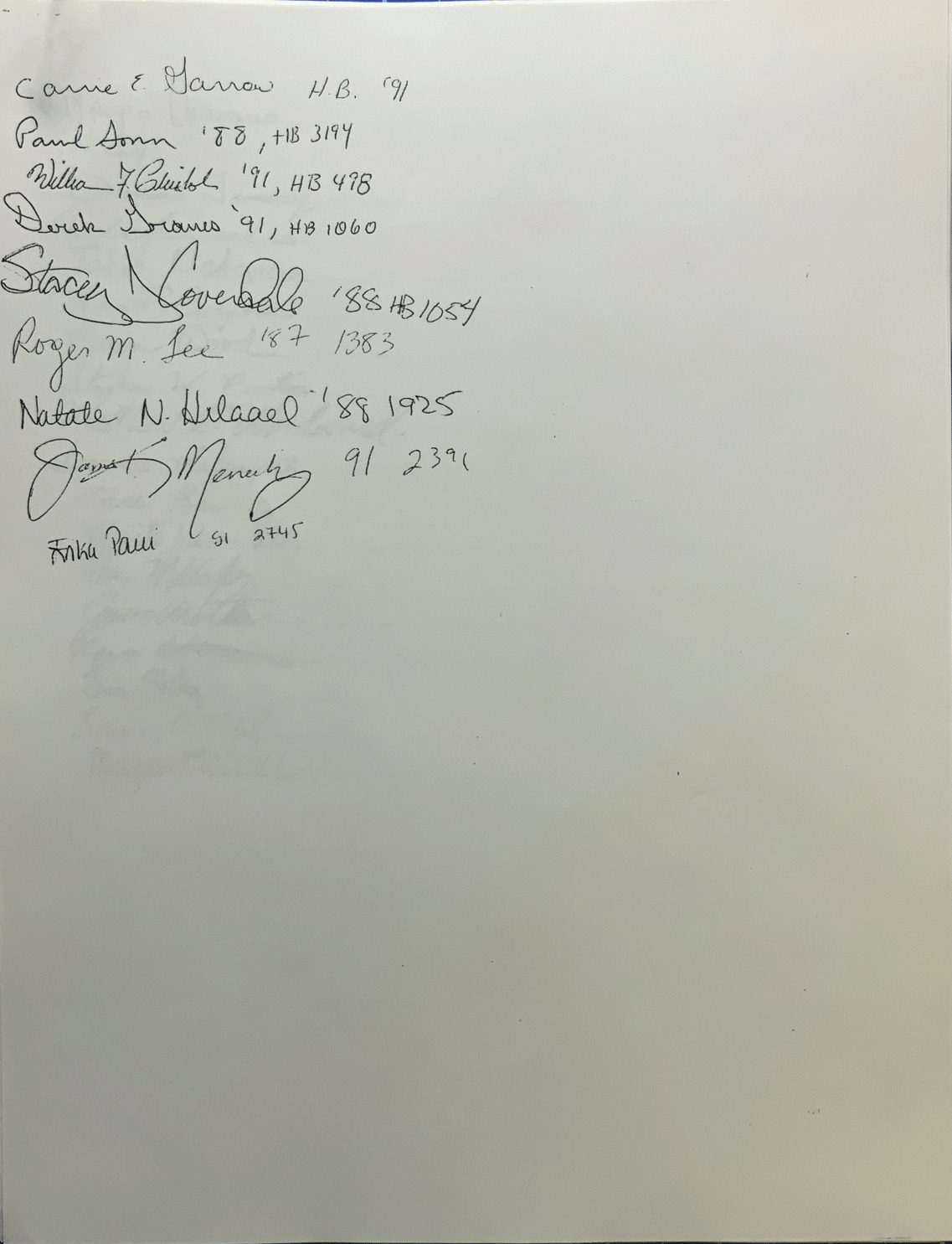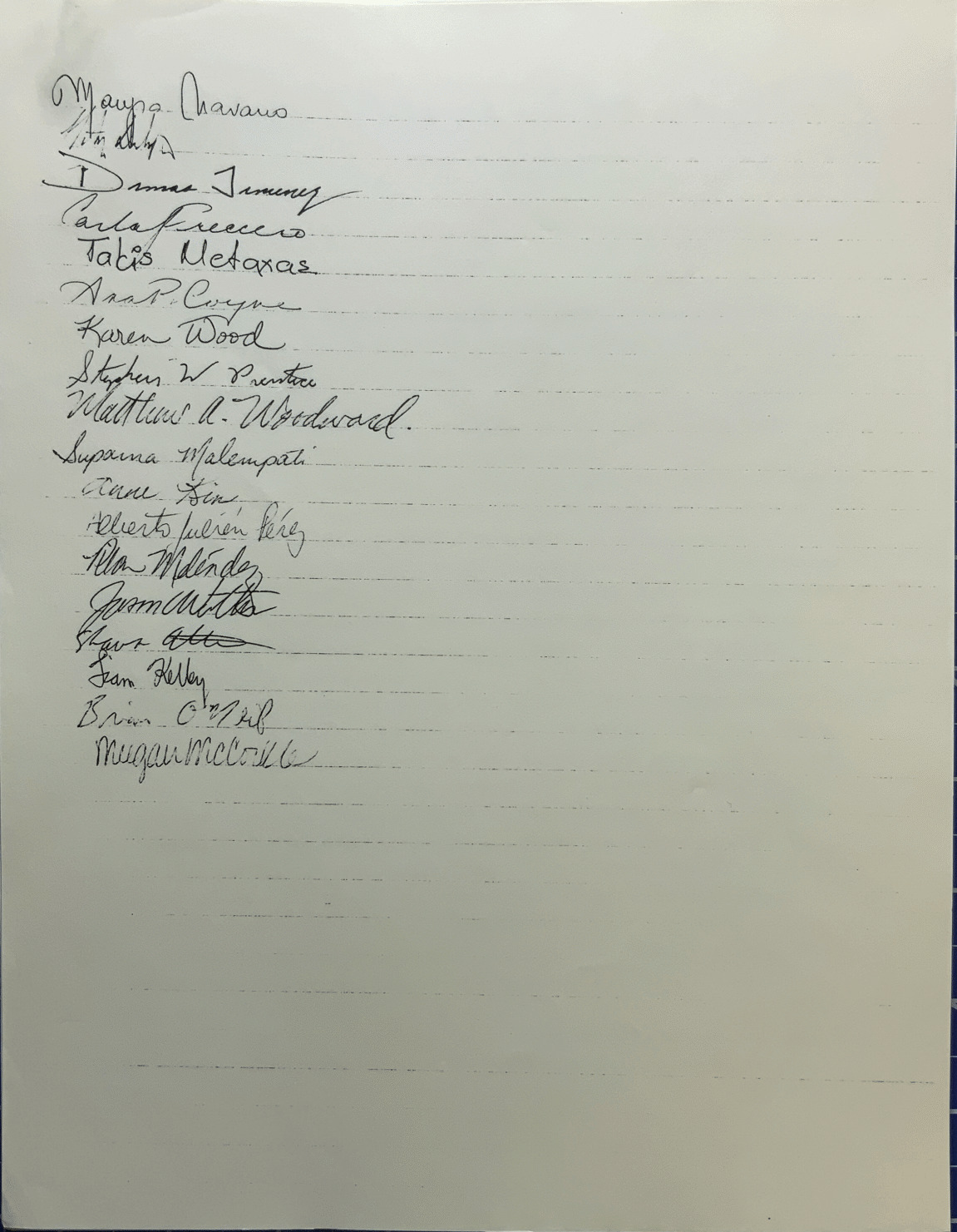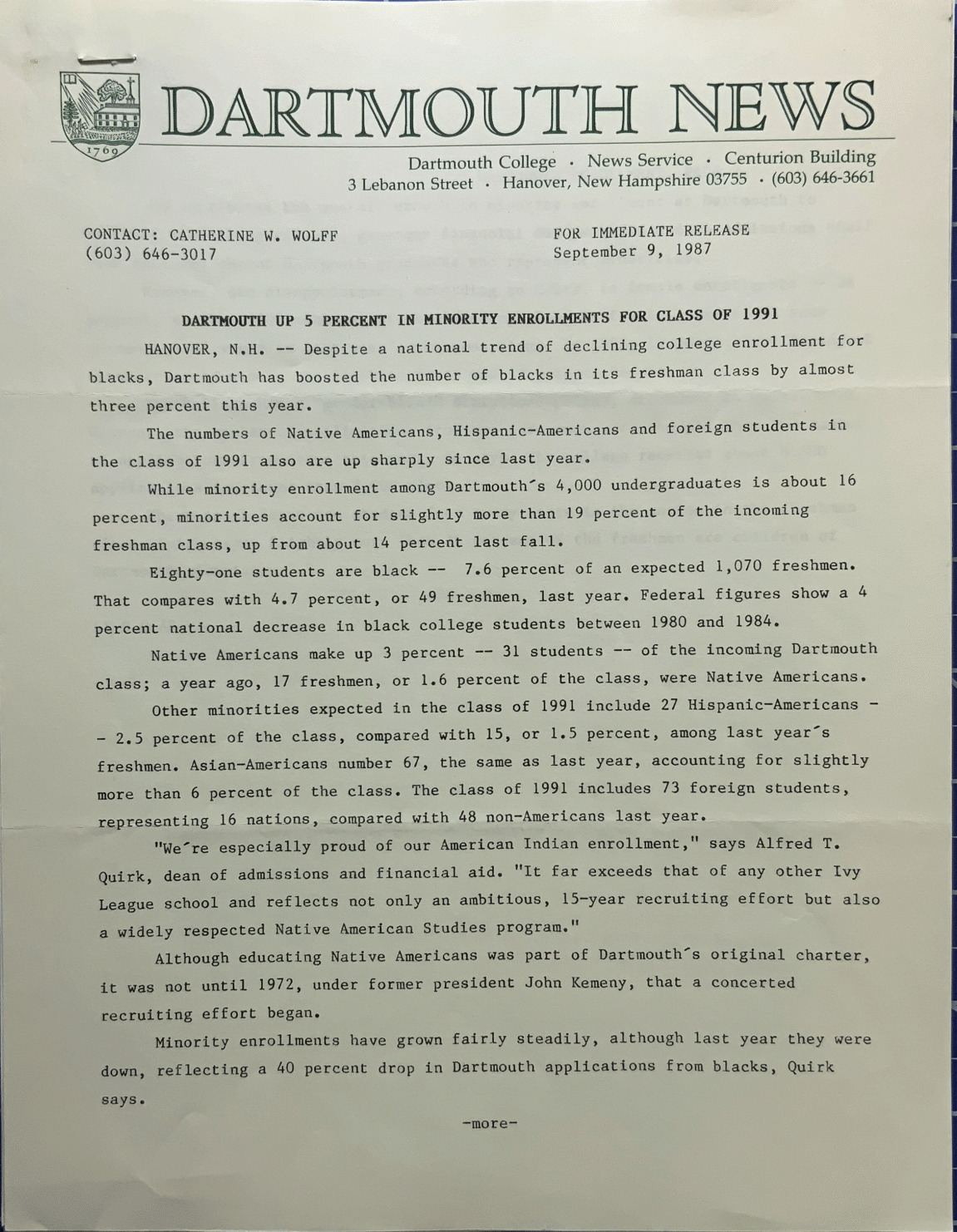1980's - Latinx Recruitment and the Administrative Response
The Push for Recruitment and the Beginning of LALACS
Despite the Latino Forum fizzling out, the spirit of the organization was never lost. Calls for recruitment continued in the 1980's, now prominently picked up by Professor Marysa Navarro, a History professor with an background in Argentinian history. She became passionate about coordinating with the administration about recruiting students, citing the deficit between peer universities which had not improved much since 1979. By 1987, the administration seemed slightly satisfied with recruitment as C. Dwight Lahr cites in his memo to Rob Oden (pictured upper right). Lahr also proudly mentions the newly created Latin American Studies concentration within the Spanish and Portugese Department, which he states will be "a means of absorbing pressure for formal work in this area for the foreseeable future." In a reply memo, Navarro combats the implication of the direct connection between the recruitment of Latinx students and the development of a Latin American Studies option, which she was in the process of developing (pictured lower right). She notes that the establishment of the Latin American Studies option was intended to be following with the progression of other institutions, and she is disappointed that the two separate issues have been used to solve one another. This Latin American Studies concentration is the first inkling of what would eventually become the LALACS Department, which makes it an important first step.
The Relationship Between Ethnic Studies Departments and Recruitment
Unfortunately, as Caban writes, ethnic studies departments in general have only seemed to come into being in response to activism and reported difficulties students of that ethnicity have faced at universities, especially in the 1970's and 80's. Dartmouth is no exception when it comes to Latin American Studies, where the outrage was related to lack of recruitment. Because of this, administrations are mainly establishing these departments are a form of appeasment. It is also a large plus for the administration that the programs are integrated, giving them the moral high ground of unity and inclusion. However, due to them being established without intention, they are often underfunded, directionless, and serve to be something administrations can cite as a benefit of their institution.
Dartmouth established its Native American Studies Program in 1972 and established what would become its African and African-American Studies Program even earlier in 1969. The latter was founded following protests on campus, while the former was founded by President John G. Kemeny after he vowed to reuptake the founding promise of the College's charter to be for instruction of Native and White students alike. The delay in the creation of Latin American Studies concentration in 1987, even since the founding of the Latino Forum in 1979, is indicative of how little these departments and programs are taken seriously.
Ethnicity-focused departments, programs, and recruitment at institutions like Dartmouth exist only for the purpose of proving the worth of the insitution. While many actually benefit in a tangible way from these efforts, they were made to exist as one of many bullet points to attract students to apply. In an article about increased recruitment (pictured left), Dean of Admissions and Financial Aid Alfred T. Quirk pats himself on the back, especially in response to the Native enrollment. While there are clear benefits of diversity and diversity-focused programs, when they all get jumbled together for the purpose of bragging most of the benefit can be lost. But there is hope in the future of all of these departments, as they find a definition for themselves independent of a justification for diversity.

